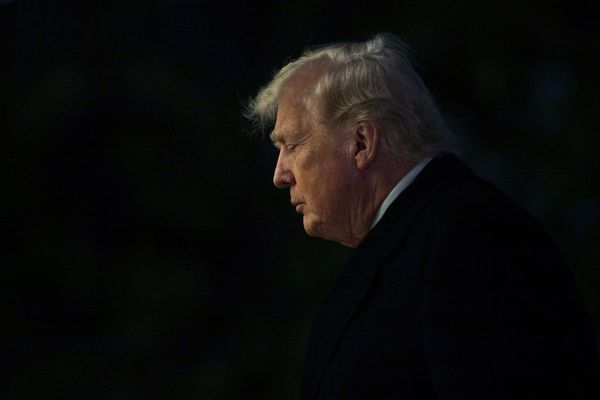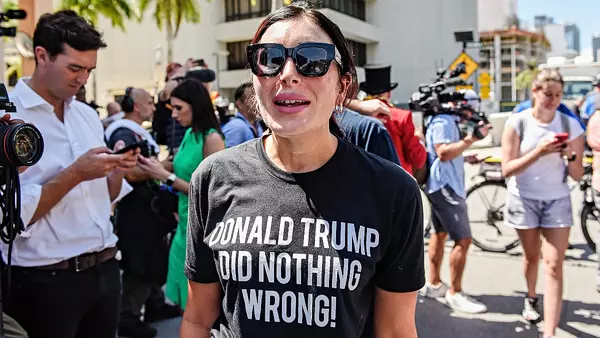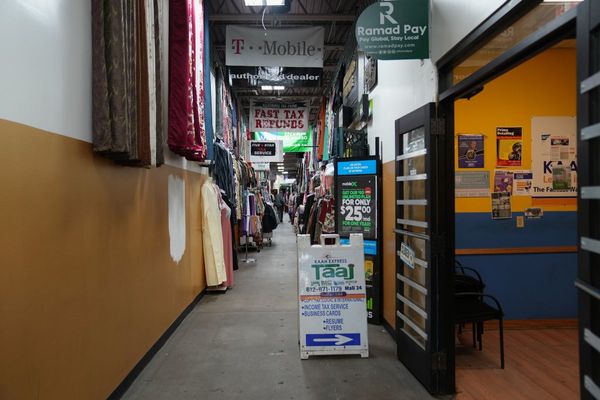
The Cosa Nostra in Sicily, the Camorra in Naples and the 'Ndrangheta in Calabria – by far the most powerful, but also the least known – are Italy’s three main mafia groups. In an interview with RFI, French criminologist, economist and mafia specialist Clotilde Champeyrache paints a picture of misunderstood networks whose influence stretches far beyond Italy’s borders.
RFI: The mafia is so well-known that it has come to be used to refer to all forms of organised crime in Italy, and the rest of the world. Does its presence in the United States, its depiction in so many successful films and the extreme violence it unleashed – at least up until the murders of judges Giovanni Falcone and Paolo Borsellino in 1992 – explain this notoriety? And do people really understand it?
Clotilde Champeyrache: The word "mafia" has become popular around the world thanks to media coverage of its more visible sides – from glamorous films to a kind of branding that uses buzzwords like "Cosa Nostra" or "Al Capone".
Yet these are merely representations of the visible aspects of the mafia, which overemphasise preconceived ideas about criminals who maintain myths around honour. The reality, which is very different, is little known and much less "visual". The reality is a territory under control.
RFI: Journalist Roberto Saviano and, after him, filmmaker Matteo Garrone, painted a vivid picture of the Neapolitan Camorra, before it was then mythologised on television. What hold does this organisation have over Naples? And what influence does it have beyond that city?
CC: The Camorra, like any mafia, impacts the illegal economy, but also has a conditioning effect on the legal economy, the social life of a city and politics. Living in mafia country means having to integrate this criminal presence into everyday life. That's why Neapolitans use the term "o sistema" – which means "the system" – rather than the term "Camorra". Today, the mafia presence has spread beyond Naples, notably to the city of Caserta – not to mention its expansion outside the region of Campania.
Police break up French-Italian wine fraud ring
RFI: In the latter half of the 1980s, the clan rivalries of the Calabrian ‘Ndrangheta, particularly around the Aspromonte mountain range, led to hundreds of deaths. Since then, the organisation has become much more discreet, and has extended its network far beyond the countryside of Italy's poorest region. How widespread is it today? What dangers does it represent at a European and a global level?
CC: The ‘Ndrangheta flew under the radar for a long time because it seemed archaic and rural. Taking advantage of this low profile, it grew in power and learned by working for the Sicilian Cosa Nostra. It grew rich in various forms of trafficking and used major migratory chains to set up logistical outposts all over the world. It is now the most powerful mafia in Italy and beyond, with a truly strategic approach to its territory.
The organisation chart of its families is evolving in such a way as to perfectly connect the mafia's projections outside Calabria to the families’ territories of origin. The aim is not just to be present all over the world to support illegal activities. It is to establish Mafia-controlled territories outside Calabria as quickly as possible, with infiltration of the legal economy and attempts to manipulate local elections.
RFI: What these networks have in common is that they were born on the land of what was once the Kingdom of the Two Sicilies – a historical kingdom that existed from 1816 to 1861 and comprised the island of Sicily and most of the Italian peninsula south of the Papal States – where the Italian state has never been able to exert any real control. What place have they occupied historically? What role do they still claim in society?
CC: Mafias have filled a void where the official authorities have not exercised their prerogatives, or have done so only to a limited extent. Lack of justice, poor respect for property rights, the absence of an effective legitimate response to violence and institutional distrust are all factors that have enabled mafia-type services on offer to flourish.
The mafias' primary activity is "protection" – which justifies racketeering – and mediation, whether in disputes, theft or transactions. The mafia always lay claim to this status of "judge of the peace", relying on a discourse that delegitimises the State. For example, mafia members offer people who are tired of being on the waiting list access to social housing, in return for payment. The de facto occupation of these premises is then formalised by a corrupt administration.
Italy targets ‘Ndrangheta group in biggest mafia trial in decades
RFI: Films such as Marco Bellocchio's The Traitor (2019), which tells the story of Tommaso Buscetta, the repentant man who brought down the mafia boss Salvatore Riina, have recently shown the reality of the Sicilian mafia: a sordid and deadly world, where nothing – not even traditional values such as the family or religion – is truly respected. Why is this deconstruction necessary?
CC: Hollywood depictions of the mafia emphasise the supposed honourability of their crimes. They indulge in the aesthetics of the violence, arousing fascination.
The reality of the mafia is bleak. It imprisons people – both those who live inside mafia territory, and the mafia members themselves, who in general are born, live and die in a mafia culture that is imposed rather than chosen. This misery and lack of freedom needs to be shown.
RFI: The French state has declared war on drug trafficking. With cocaine money the lifeblood of the ‘Ndrangheta, the strategy of the Italian police and judiciary seems more holistic in combatting this trade. What can Italy teach France in this respect?
CC: The Italians, with their experience of dealing with terrorism and organised crime, think more about the criminal organisations than their markets. They identify the different organisations, how they are organised and their hierarchies. Since they are not all equally powerful and dangerous, targeting the big players is more relevant.
This is all the more true now that more and more criminal organisations in Europe are characterised by the diversity of their criminal activities, which are not confined to drug trafficking alone.
Italy's 'Fourth Mafia', little-known but extremely violent
RFI: What is the economic impact of Italian organised crime today?
CC: Basically, nobody knows. Firstly, because illegal activity is highly varied and by its very nature hidden, making it difficult to quantify. But also because the mafias have succeeded perfectly in blurring the line between legality and illegality.
Widely present in a number of legal activities – catering, tourism, supermarkets, agriculture and more – they also control legal economic players by extorting money from them, imposing labour or suppliers on them and obtaining sub-contracts.
This article was adapted from the original version in French. Some answers have been lightly edited for clarity.







